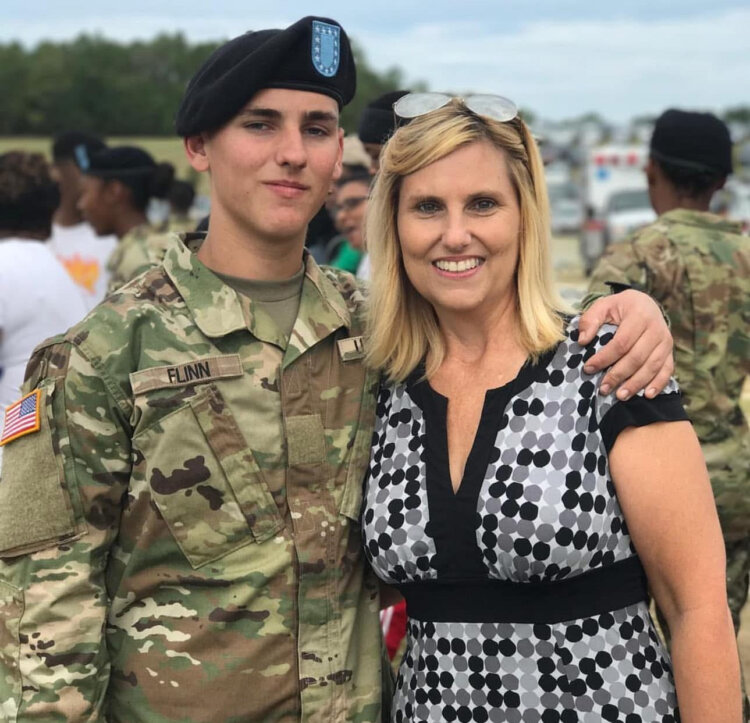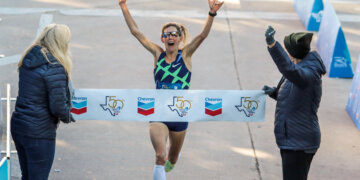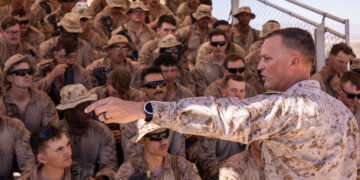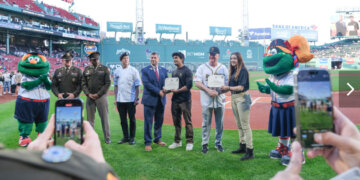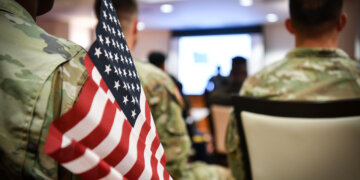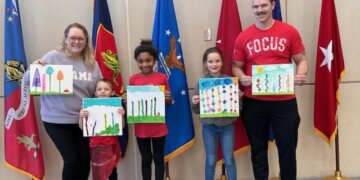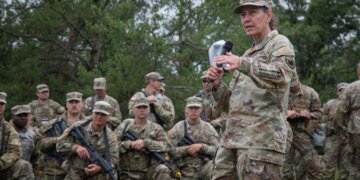An ambassador for the Army Reserve is sharing commonalities between generations of citizen-soldiers after learning about her family’s own connection to the Revolutionary War.
When the Army Reserve celebrated its birthday earlier this year, it did so at the birthplace of the American Revolution to honor the minutemen who fought in the war. Since the Continental Army was created in 1775, Army Reserve soldiers have served as the backbone of the military, ready to serve at a moment’s notice. As we approach the Army’s 250th anniversary, reservists still play a critical role supporting the U.S. military.
The Army Reserve Ambassador (ARA) program is a prime example of that support. The program was introduced in 1998 with the goal of spreading awareness and advocacy for the Army Reserve by building bridges of communication across the nation.
“This outreach tool allows influential private citizens to volunteer as community advocates on behalf of the Army Reserve’s mission,” said Army Lt. Col. Jeku Royce “J.R.” Arce, who manages the program for the Office of the Chief of the Army Reserve.
The ARA currently has representation in most U.S. states, including one ambassador with a lineage dating back to the American Revolution.
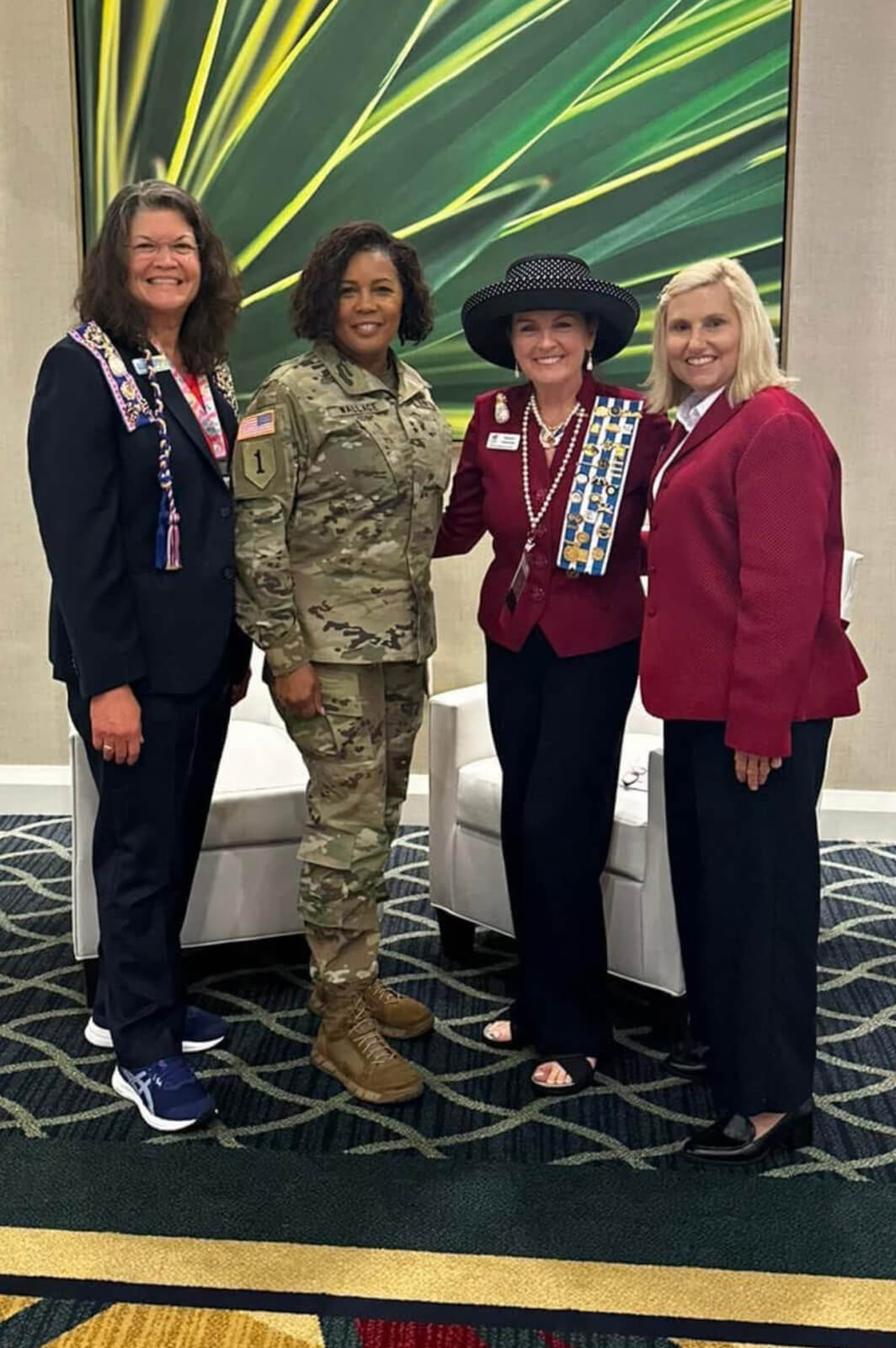
Supporting the Army Reserve mission
Jennifer Flinn is a Florida-based ambassador who brings a wealth of military and reserve experience to the table. Her son is also currently a staff sergeant in the Army Reserve. Having served as a volunteer during her spouse’s 30-year military career, she has the know-how to advocate for reservists in Florida.
“I do endless outreach with businesses and community leaders sharing the support for reservists,” she said.
Her volunteer service began in 1995 and continues today. Flinn volunteered within the Soldier and Family Readiness Group (SFRG), helping build new SFRGs in Florida and Arizona.
“I’m also an active volunteer at Yellow Ribbon events,” she said, “where I serve on the family panel, supporting family members and friends of soldiers who are in pre and post deployment phases.”
Flinn graduated from St. Leo University in Florida with a bachelor’s degree in psychology and a master’s degree in criminal justice-behavioral studies.
A history dating back 250 years

In addition to Flinn’s military experiences, she also has a lineage dating back to the Revolutionary War. She is a member of the National Society Daughters of the American Revolution (DAR), a lineage-based membership service organization for women who are direct descendants from a patriot of the American Revolutionary War, which took place from 1775 to 1783.
Flinn is one of only a handful of individuals who can trace their heritage back 250 years. Her distant relative, officially called a patriot, Isaac Jonathan Newman, participated in the North Carolina Battle of King’s Mountain on Oct. 7, 1780. Within an hour, the Revolutionary soldiers defeated the British. Records show that Pvt. Newman was part of the Overmountain Men, also called minutemen, who participated in that historic campaign. After the war ended, Newman and his family settled in Tennessee.
“My patriot, Isaac Newman, was born in May of 1755 in Guilford County, North Carolina,” Flinn added. “Newman’s family founded Carson Newman College in Jefferson City, Tennessee. The school has a great Reserve Officers’ Training Corps (ROTC) program.
“My grandmother and grandfather met while attending Carson Newman College, and my grandfather’s picture hangs on the wall as he played football while there. I also discovered a great deal about my lineage from the Carson Newman College Library, since my father and all his family were from Jefferson City, where Isaac Newman settled after the war.”
Flinn pointed out that today’s Army Reserve soldiers aren’t too far removed from the minutemen of the Revolutionary War.
“Just like the revolutionary soldiers, today’s reservists are citizens first and then soldiers,” she said. “Both play (and played) a critical role in supporting the Army’s mission. Readiness is the key of today’s reservists — they are always ready.”




